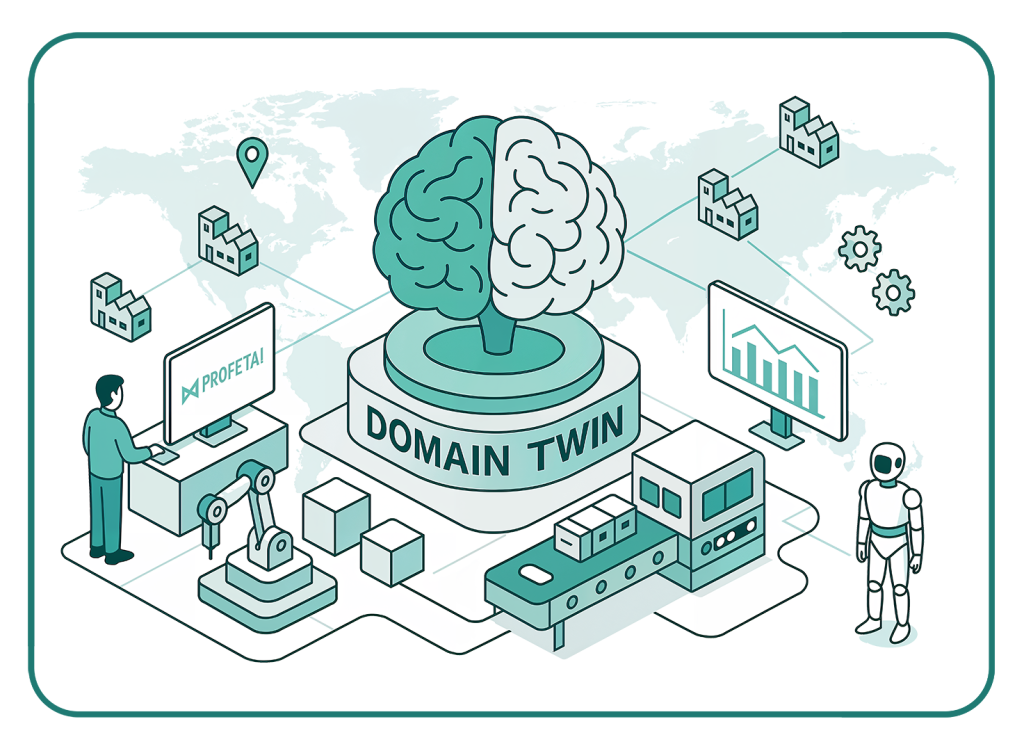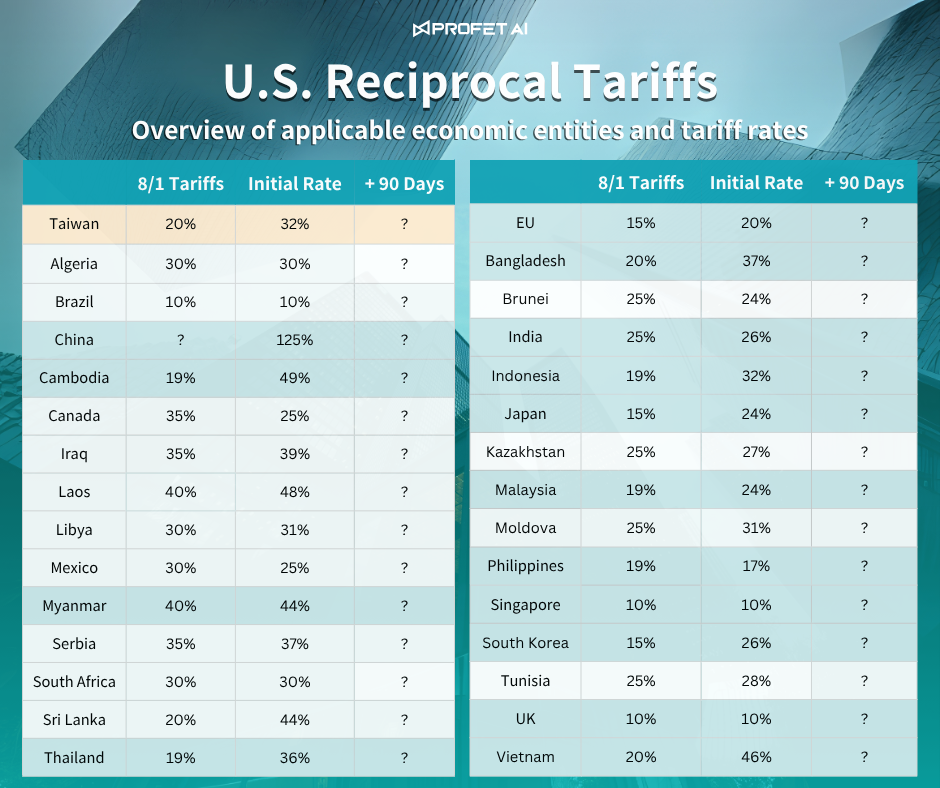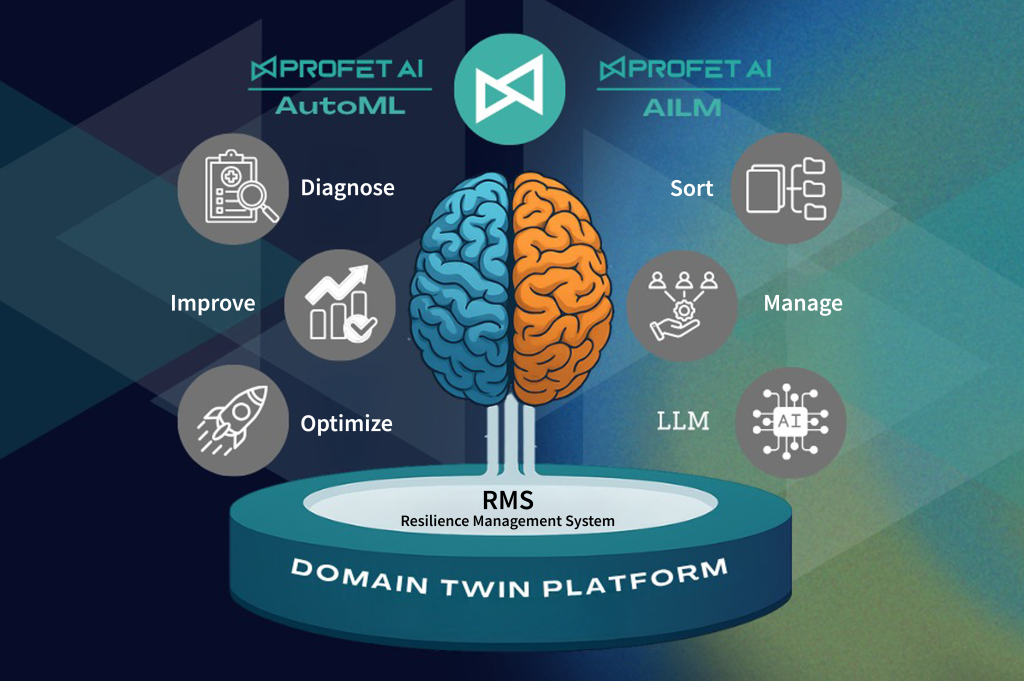From U.S. Tariffs to Resilience: Scaling Smart Manufacturing with Domain Twin

Insights from Profet AI’s Frontline Experience on How Manufacturers Can Navigate Uncertainty
The United States recently implemented reciprocal tariff adjustments under Section 301 of the Trade Act, imposing additional tariffs of up to 20% on a range of Taiwanese exports. These include critical electronics manufacturing components such as chips, IC packaging materials, and PCB parts, significantly increasing cost pressures on Taiwan’s high-tech industries in the U.S. market. In particular, semiconductor products face tariffs as high as 100% unless they are manufactured at facilities located in the United States, prompting serious concern within the industry about the potential impact.
Through extensive conversations with semiconductor and electronics manufacturing clients, Profet AI has observed a growing consensus:
Even with production lines currently running at full capacity, manufacturers recognize the urgency of developing replicable, transferable process capabilities to address rising costs, shifting orders, and global customer demands—ultimately strengthening operational resilience.
The Semiconductor Industry’s Current Challenges: The Impact of Non-Exemption

Taiwan Still Excluded from Exemptions – Cost Pressures Escalate
Under the updated U.S. tariff policy, many high-tech products exported from Taiwan—including chips, materials, and key electronic components—now face a 20% duty.
While several Asian countries have been able to negotiate lower tariff rates, Taiwan remains subject to 20% tariffs, reducing the price competitiveness of domestic manufacturers in the U.S. market.
Rising Risk of Order Shifts and Diversified Supply Chain Requirements
To reduce overall supply chain costs and risks, many U.S. brand customers are asking suppliers to relocate their production to the U.S. to deal with the cost that may arise with the new tariff rates —intensifying pressure on Taiwanese manufacturers to diversify their global footprint.
Knowledge Transfer Remains a Bottleneck
Many high-tech manufacturing processes still rely heavily on the tacit knowledge and on-site judgment of experienced personnel.
Even with overseas expansion plans in place, manufacturers often struggle with incomplete knowledge transfer and inconsistent process stability, resulting in prolonged ramp-up periods and challenges in achieving reliable yields.
Domain Twin™: Building Transferable Manufacturing Strength to Address Tariff and Order Shift Pressures

Profet AI’s experience working with manufacturing clients reveals that true resilience lies not simply in relocating production, but in the ability to replicate core manufacturing capabilities quickly and effectively across locations.
Faced with rising tariffs and shifting customer demands, manufacturers that proactively develop transferable process intelligence are better positioned to maintain delivery reliability and retain long-term customer trust.
Our solution: Domain Twin™. This technology transforms critical manufacturing knowledge into replicable, deployable digital assets—enhancing consistency and efficiency across multi-site operations.
1. Digitizing Process Knowledge to Enable Replication
Domain Twin™ helps manufacturers capture and structure operational experience, parameter logic, and exception handling procedures into unified digital models—allowing tacit know-how to be standardized, managed, and applied across different production environments.
2. Cross-Site Simulation for Layout and Transfer Optimization
By simulating different regional production conditions, cost structures, and equipment configurations, Domain Twin™ enables enterprises to accurately assess transfer risks and investment requirements, accelerating decision-making and deployment.
3. Reducing Ramp-Up Time and Stabilizing Yields at New Sites
With standardized procedures and data-driven recommendations, new facilities—even those with limited experienced staff—can rapidly adopt proven process logic. This shortens time-to-yield and improves early-stage productivity and consistency.
Tariffs Are Just the Beginning—The Real Challenge Is Scaling Capability
The U.S. retaliatory tariff policy is just one part of the broader transformation pressure facing the industry.
As geopolitical tensions and trade policy uncertainties continue to grow, manufacturing competitiveness will increasingly depend not just on technical expertise, but on the ability to swiftly transfer, replicate, and stabilize operations globally.
Profet AI’s Domain Twin™ enables manufacturers to convert tacit knowledge into explicit, repeatable assets, empowering organizations to adapt rapidly, deploy efficiently, and scale manufacturing capabilities with confidence.
If you would like to know more about how our Domain Twin can help you tackle manufacturing challenges, contact Profet AI to schedule a consultation with our experts.